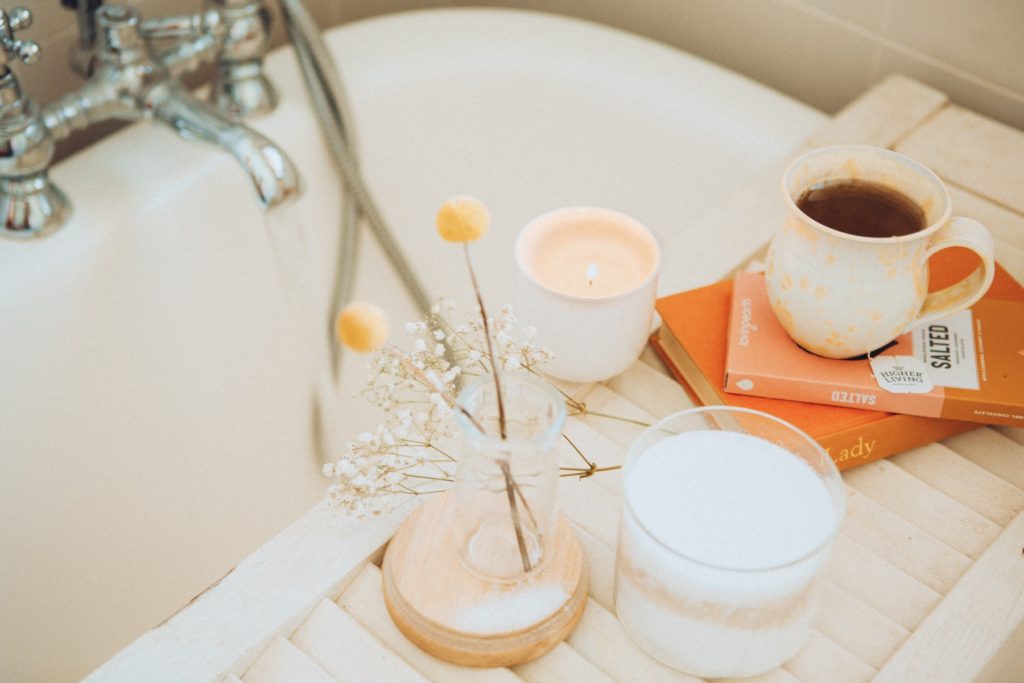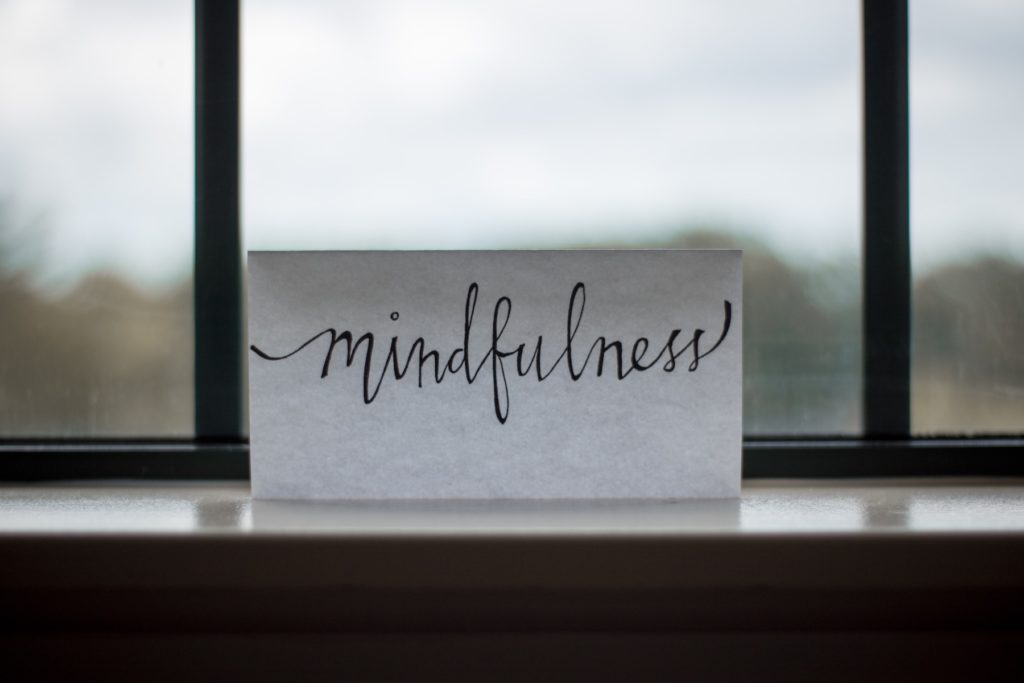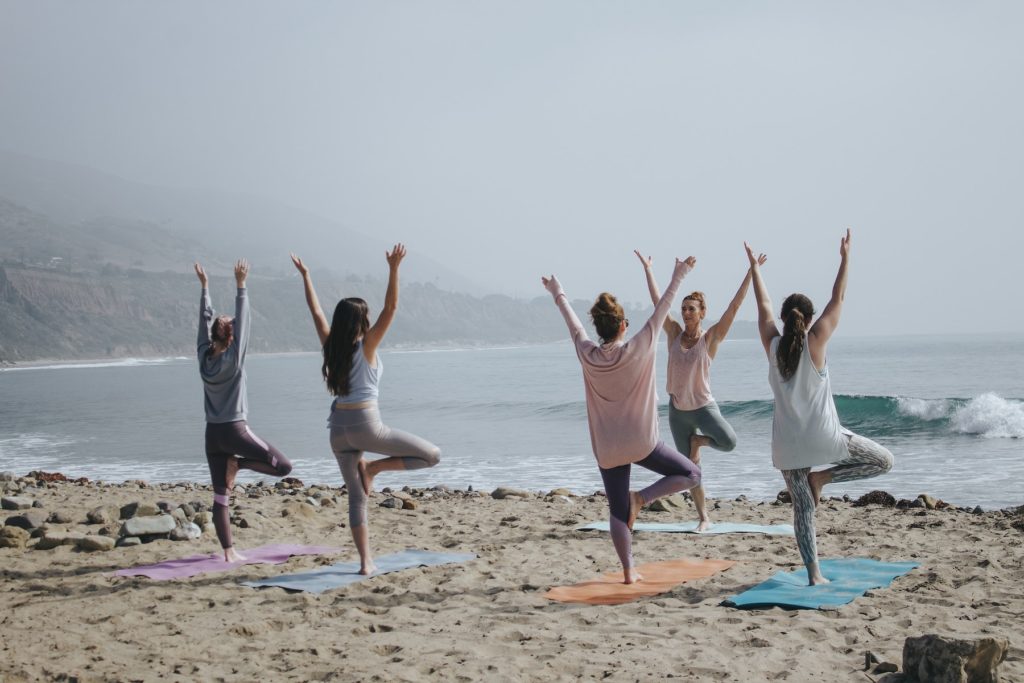Self Care: What Does It Actually Mean?

What’s the first word that comes to mind when you hear the phrase “self care”? If you would have asked me that question a few years ago, I would have replied with a list of actions: practicing yoga, doing an at-home facial, or treating myself to a massage.
As the founder of Inner Workout, self care is now my life’s work, and I regularly get to play this self care word association game with others. Their answers are never too far off from the answers I gave in the past.
I want to be clear that there’s nothing wrong with these practices and experiences. A massage sounds particularly appealing in this current moment. However, I believe that we’re doing ourselves a disservice if we treat self care as just another item on a long list of tasks. In doing that, we’re limiting our own ability to care for ourselves if we only focus on the physical body. Your self care practices should support your entire being.
What Self Care Actually Means
My first foray into self care was a regular Sunday night bath. I’d close my laptop, disengage with my phone, and spend some much needed quality time with myself. I wouldn’t reengage with the outside world until Monday morning. And, while I was consistent in the Sunday evening practice, each Sunday night looked slightly different. Some nights I’d soak with a bath bomb. Other nights I’d create my own concoction of Epsom salt and essential oils. Some weeks I’d soak for over an hour with a book. Other weeks I’d take a quick dip and listen to music before going to bed.

In the beginning, the bath was the act of self care. Over time, it became clear that the real act of self care was me checking in to see what I needed each Sunday night. A new definition of self care began to crystallize, one that Inner Workout continues to use to this day:
Self care is listening within and responding in the most loving way possible.
It’s not about doing a particular workout or skincare routine. It’s not about taking a certain amount of vacation days or getting a massage every month. Self care is an ongoing conversation that you have with yourself – it’s a skill that you build. If self care is a skill that you need help building, BetterHelp can help!
That simple mindset shift can create a world of change. Instead of seeing self care as being tied to a specific action, I began to see invitations to take care in my day to day:
- Honoring my body’s need to sleep in later or wake up earlier became self care.
- Pausing to process my emotions through a quick journaling session became self care.
- Leaving my phone at home while I spent time outside became self care.
I learned how to lovingly respond to my own needs instead of ignoring them in the name of efficiency or productivity.

What Led Me Here:
One day, I was sitting on my yoga mat, and a question popped into my head, “What if there was a class that helped people build the skill of self care?” I researched, and I couldn’t find anything that was quite what I wanted. And that’s how Inner Workout came to be.
I enrolled in a nine month yoga teacher training program, and I was quickly introduced to the yogic concept of the koshas, the layers of being. This was the missing piece.
My relationship to self care had expanded beyond caring for my physical body, but I didn’t have the language to describe it. Now, there was a framework through which I could make sure that I was actually caring for my whole self. The koshas, which we talk about as the five dimensions of wellbeing, became the foundation for Inner Workout:
- The physical dimension explores your relationship to your physical body—how well you know your body and how you care for it.
- The energetic dimension focuses on your breath and how you relate to energy in your daily life.
- The mental + emotional dimension looks at what comes into and flows out of your brain.
- The wisdom dimension explores your relationship to your own inner knowledge.
- The bliss dimension explores your connection to yourself and to the world around you.
When we engage with each dimension of wellbeing, our self care becomes that much more meaningful. It becomes as multidimensional as you are. It starts to honor where you’re at in any given moment.
Shifting Dimensions
We’re dynamic beings living in an ever changing world, which means that our relationship to each dimension is constantly shifting. There are days when I feel really in tune with my emotions but out of touch with my physical body. I go through seasons where I can hear my intuition so clearly, but I feel disconnected from anything beyond me.
The framework of the five dimensions of wellbeing has helped me better understand where I need to focus my care, but that sensitivity to my own needs took time and intention. Inner Workout’s namesake class helped me build that skill. Each class is centered around an intention and blends movement, breathwork, journaling, meditation, and flow.
Unlike another mindbody practices, everything an Inner Workout facilitator offers is a starting point. You’re the expert on your own needs, and each class is an opportunity for you to practice listening within and responding with love.
One of my favorite parts of facilitating Inner Workout classes is looking up and seeing everyone doing something slightly different. People linger in movements or find a different movement entirely that supports their needs. Participants find the position in breathwork or meditation that best serves them. That’s the goal! It means the inner work is working.

Self Care Questions to Ask Yourself:
Whether or not you join Ama La Vida’s upcoming Inner Workout class. I hope you begin to broaden your relationship to self care so that it can be as multidimensional as you are. Here are some questions to ponder:
- What is my physical body telling me?
- Observe your breath. What do you notice?
- What emotions are you experiencing right now?
- How would I approach next month differently, if I didn’t focus on the opinions of others?
- What makes me feel most connected to something bigger than myself?
Continue to build the skill of self care. Keep listening. Keep responding.








